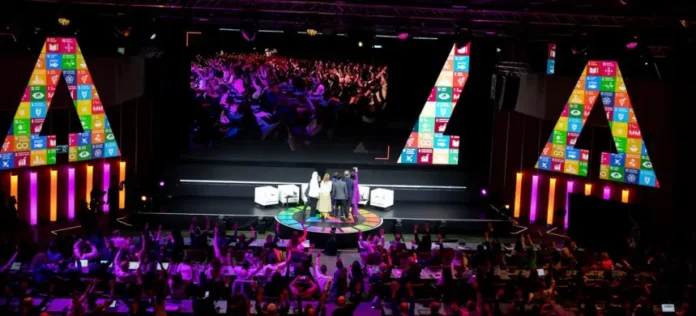The AI for Good Global Summit 2025 kicked off in Geneva on Tuesday, bringing together world leaders, technology experts, and civil society to confront the dual challenge of harnessing artificial intelligence for sustainable development while managing its growing risks.
Organized by the International Telecommunication Union (ITU), the four-day summit has drawn delegates from over 100 countries, with a focus on leveraging AI to advance the Sustainable Development Goals (SDGs). The event features more than 200 technology demonstrations, showcasing innovations from flying cars to AI-powered disaster response tools.
In her keynote address, ITU Secretary-General Doreen Bogdan-Martin warned that the greatest danger lies not in apocalyptic AI scenarios but in deploying the technology without sufficient public understanding or policy safeguards. “The biggest risk is embedding AI everywhere without knowing what that means for people and our planet,” she said.
Her concerns were echoed by a recent ITU survey, which found that 85% of countries still lack a national AI policy, raising concerns about growing inequalities and a widening digital divide.
A highlight of the summit is AI Governance Day on Thursday, where global regulators will discuss the need for unified oversight. Meanwhile, the Innovation Factory startup competition is spotlighting AI solutions for climate resilience, education, and healthcare.
Health has emerged as a central theme, with the World Health Organization (WHO) set to lead a session on Wednesday titled “Enabling AI for Health Innovation and Access.” The session will showcase AI tools for emergency triage and diagnostics in underserved regions and preview WHO’s upcoming Technical Brief on AI in Traditional Medicine.
The summit will also celebrate the AI for Good Awards, honoring groundbreaking projects using AI to benefit people, the planet, and global prosperity. Youth-led robotics teams and local innovators are among those presenting solutions for biodiversity monitoring, waste management, and disaster recovery.
As the summit continues through Friday, Bogdan-Martin closed her address with a powerful reminder: “Let’s never stop putting AI at the service of all people and our planet.”
The event underscores the urgent need to match the rapid pace of AI advancement with inclusive, ethical, and human-centered development.
Written By Rodney Mbua



















